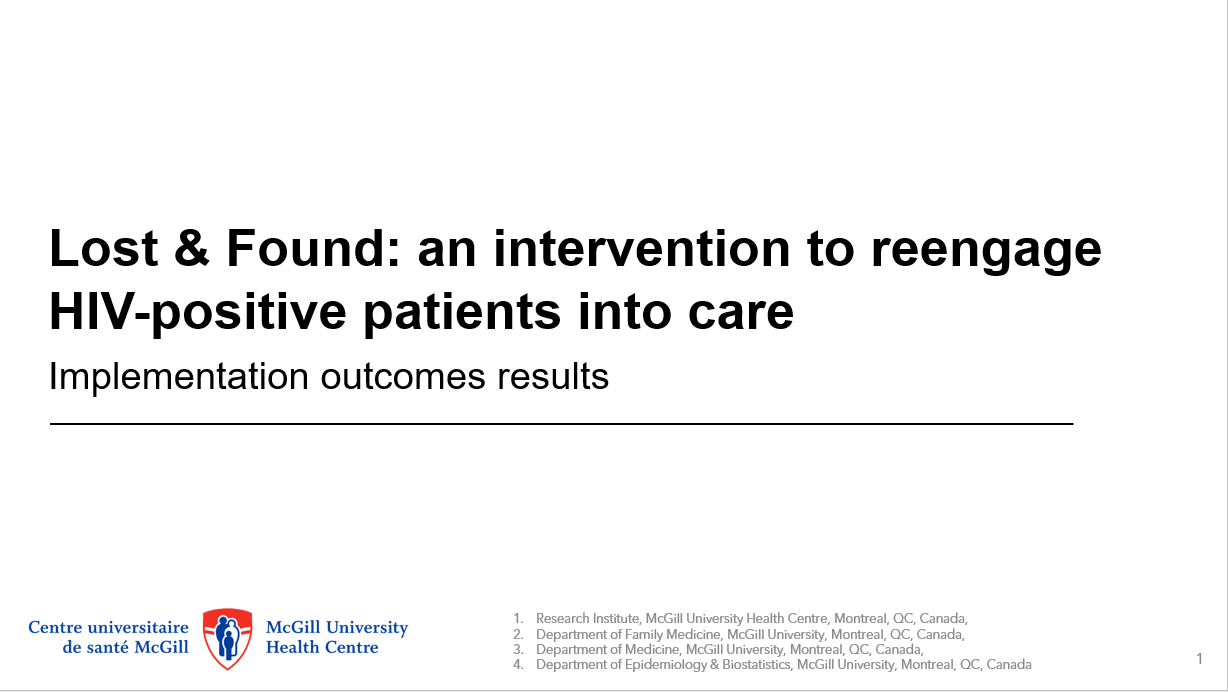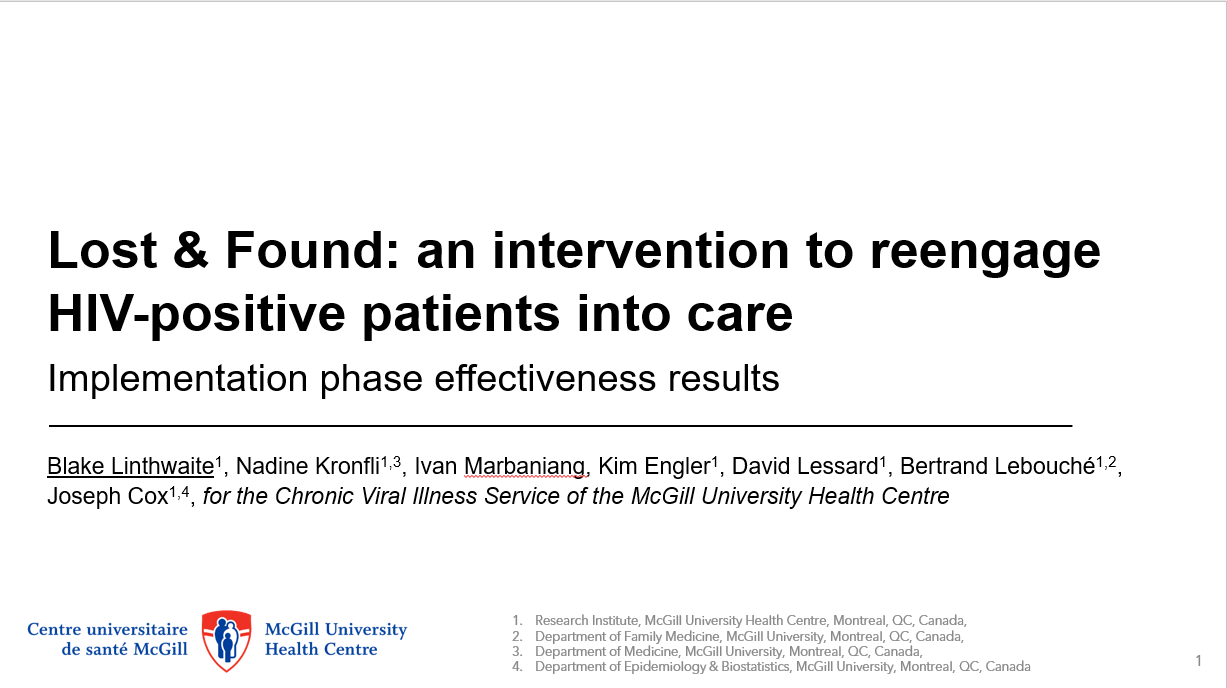LOST AND FOUND
Background
The negative impact of patients lost to follow up include: suboptimal adherence, virologic failure, development of resistance, secondary HIV transmission, increased hospitalization costs and reduced survival rate. The Chronic Viral Infection Service (CVIS) at McGill University Health Centre have developed a risk-informed two-step algorithm to identify patients lost to follow-up, who should be targeted for re-engagement into HIV care.

Design
In Phase 1, patients are classified as potentially lost to follow-up by their clinical characteristics: Viral load, CD4 count, presence/absence polypharmacy, and time since their last appointment.
In Phase 2, patients who are lost to follow-up will be contacted by nurses trained in motivational interviewing, booked for an appointment within 2- 8 weeks, as per clinical urgency. Patients who subsequently miss their rescheduled appointment will be contacted the same day and re-scheduled. An estimated 25-30 patients will be identified as potentially lost to follow up each month.
Primary Objectives
- Assess the practicality and acceptability of the among nurses;
- Determine the acceptability of Phase II of the intervention among patients;
- Assess the effectiveness of the intervention (Phases I and II); and
- Ascertain the sociodemographic, psychosocial, and clinical characteristics of patients lost to follow-up and re-engaged.
Results
- Two general patterns in implementation outcomes (other than fidelity):
- High pre-implementation scores, followed by a slight drop in earlier months, followed by a return to high scores in later months
- Lower pre-implementation scores increasing to a plateau
- High pre-implementation scores, followed by a slight drop in earlier months, followed by a return to high scores in later months
- Fidelity stable or increasing over study
- Low rates of “phone calls made” reflective of task shifting
- Nurses assigned one person as primary for Lost & found activities, who made phone calls each month
- Possibly an adjustment to human resource limitations – an important risk factor in Lost & Found implementation
- Low rates of “phone calls made” reflective of task shifting
- Early months critical to identify and address threats to Lost & Found implementation
- Low scores in earlier months reflective of:
- Technical difficulties, followed by corrections and related adaptations (e.g. improving function of the OOC-RPT)
- Nature of the intervention, requiring clean-up of the OOC-list in earlier months
- Similar trends between fidelity to OOC-list, as well as feasibility and acceptability of phone calls
- Feasibility the most upstream – may be an important factor for Lost & Found implementation.
- Low scores in earlier months reflective of:
Collaborators
Dr. Joseph Cox
Dr. Nadine Kronfli
Setting
McGill University Health Centre.
Location
Canada
Duration
Dec 2017-March 2020
Category
Retention in Care and Adherence
Key study materials
RELATED STUDIES
USA
This study investigates barriers and facilitators specifically among foreign and US born Spanish and English-speaking Latino MSM.
USA
As part of an effort to re-engage patients into care, this study determined the effectiveness of using an outreach nurse as a direct clinical liaison through the State Bridge Counsellor (SBC) Program
USA
As part of this project, financial incentives were used to engage and retain people living with HIV with the goal of contributing to viral suppression in the Baton Rouge, LA area.
Study focus areas
Our implementation research projects have a global reach and focus on improving the HIV prevention and care continuum.

NP-GBL-HVX-WCNT-220049 October 2023
Adverse events should be reported. Reporting forms and information can be found at yellowcard.mhra.gov.uk or search for MHRA Yellowcard in the Google Play or Apple App store. Adverse events should also be reported to GlaxoSmithKline on 0800 221441.
If you are from outside the UK, you can report adverse events to GSK/ViiV by selecting your region and market, here.


